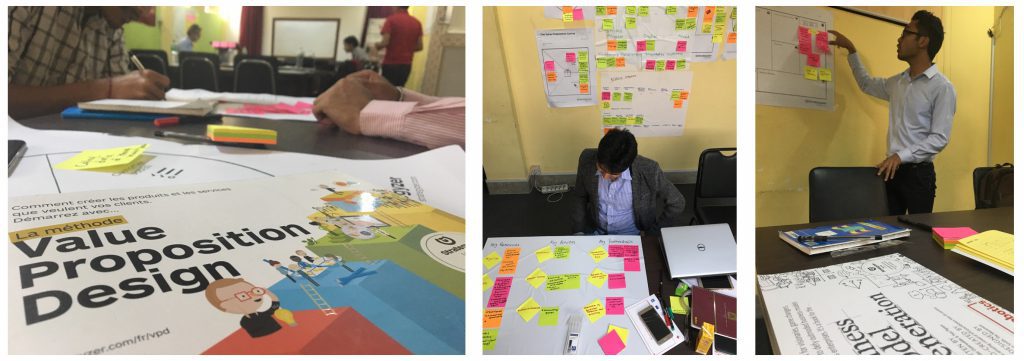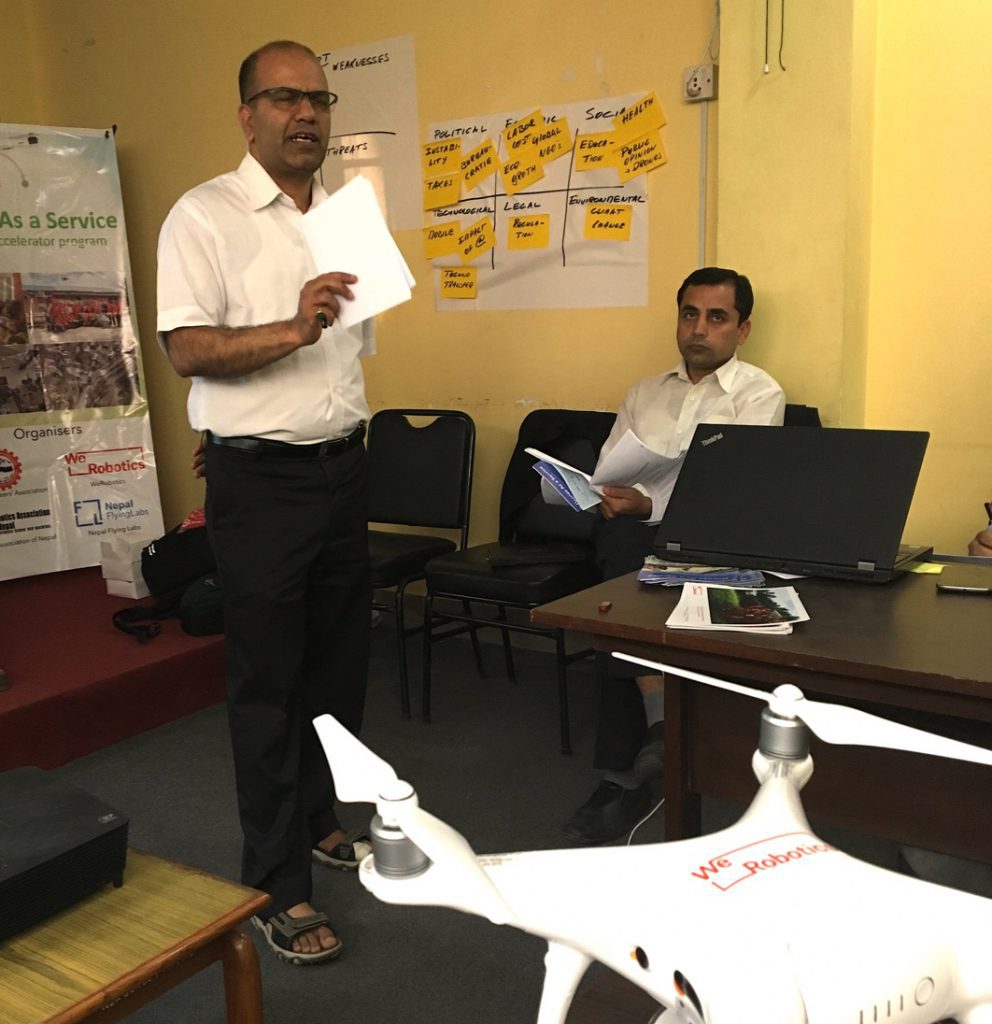
Incubating Robotics Businesses in Nepal
May 4th, 2017

From ideas to creating "Drone as a Service" businesses in a week
The goal of our Flying Labs is to create local capacity around the use of robotics. The framework we use to establish our Flying Labs includes various phases -- like technical training and projects -- to apply the newly learned technical skills. Technical knowledge transfer is only part of the solution, however. There is a clear need and demand to grow the local market and make it sustainable. For this reason, our framework also includes a Business Incubation Program. This phase of our Flying Labs framework is absolutely essential as most of the local trainees are engineers from various backgrounds -- like mechanical, electrical and geomatics engineering. While they all know the engineering challenges perfectly well and understand what the solutions need to be, they are missing the business skills that are essential to create, grow and sustain their business.

WeRobotics’ first Business Incubation Program was organized at our Nepal Flying Labs, in collaboration with our local partners for this program, the Nepal Engineers’ Association (NEA) and the Robotics Association of Nepal (RAN). Starting with an “Ideation” phase in January, Nepal Flying Labs and our partners motivated young engineers throughout the country to brainstorm about how they might build their own business using drones to offer new services. A total of 37 teams submitted ideas and we invited 19 of those teams with the most feasible ideas to pitch them at an official pitching day (read more about the Pitching Day in this blog). The jury subsequently selected the 4 finalist teams with the most promising ideas.

From April 10 to 14, 2017, together with our colleague Laurent Kohler, an Economist and experienced Business Developer, we organized a one week seminar at NEA headquarters in Kathmandu with the goal to provide the 4 finalist teams with easy applicable tools to turn their ideas into solid and sustainable business plans. We are big fans of Strategyzer’s Business Model Canvas and Value Proposition Canvas, so our program was largely built on these freely accessible tools. But tools are only powerful if you learn how to apply them in your own world, which is why our seminar program was very hands-on. We started every morning and afternoon with a short theory session and invited the 4 teams to apply the theory to their business idea. It was fascinating for all of us, coaches and trainees, to see how the blank walls of our training hall turned into very detailed business specifications and solid business models, this in full color thanks to the use of sticky-notes (which, we discovered, was also a new learning opportunity for our trainees). The many working sessions also helped each team in their team-building approach, as the members brainstormed together to find new ways to look at their original business idea and challenged each other over ideas and assumptions. Watch the video of the seminar week here.

For any business, success does not only depend on the business itself but also strongly on the ecosystem and environment the business is living in. Even more so for any business that will use drones to deliver their services as drones are heavily regulated in all countries, including Nepal. Both the Nepalese Home Ministry and the Civil Aviation Authority of Nepal (CAAN), the two regulation bodies of drone application in Nepal, accepted our invitation to participate in our seminar and present the current drone regulations in an open Q&A session. This session was highly valuable to all of us: the trainees, both government bodies as well as Nepal Flying Labs and WeRobotics. The open discussion clearly confirmed that education on how drone technology can have a positive social impact and generate new opportunities and businesses in Nepal is vital for all implicated stakeholders (including the government to be able to draft new drone regulations that are adapted to the local market needs). And that this education can only be meaningful when it comes in the format of applied learnings, pilot projects and case studies, which our Flying Labs directly enable. On the last day of our seminar, we shared with our finalist teams the essentials of short and compelling pitches. This is particularly important both for their participation in the final competition -- scheduled for the end of May -- but also for the weeks ahead when they will work on the iteration of their business plan and validation of their business model with their future customers and stakeholders.
Find more information on our Business Incubation Program in Nepal including short bio's of the 4 finalist teams here. Stay tuned as we will announce the winner of the final competition by the end of May. Though one thing is already clear now: all 4 teams are on a winning streak, if not for the final competition, then certainly for building innovative new business that will bring new opportunities, development and jobs to Nepal.

I would like to extend my deepest thanks to my friend Laurent, who has volunteered his time, knowledge and skills to make this seminar happen, and to our partners NEA and RAN for supporting us and making this first Business Incubation in Nepal a reality and a resounding success. Our thanks also go to the Home Ministry and Civil Aviation Authority for their direct contribution to the program and the open session, which was one of the week's major highlights for all attendees.
Written by Sonja Betschart
Recent Articles

